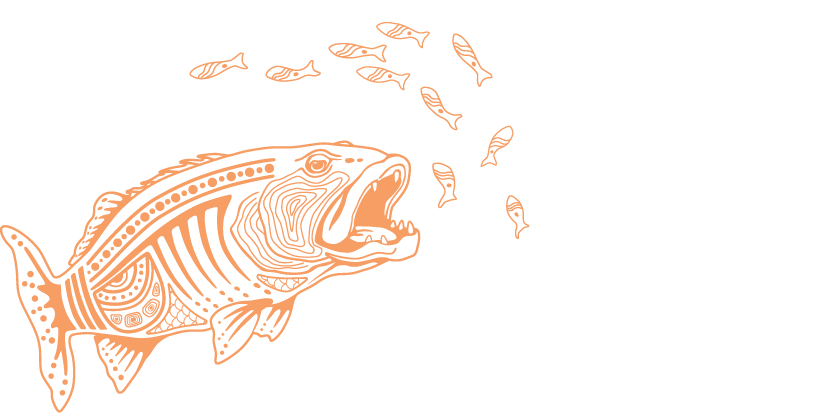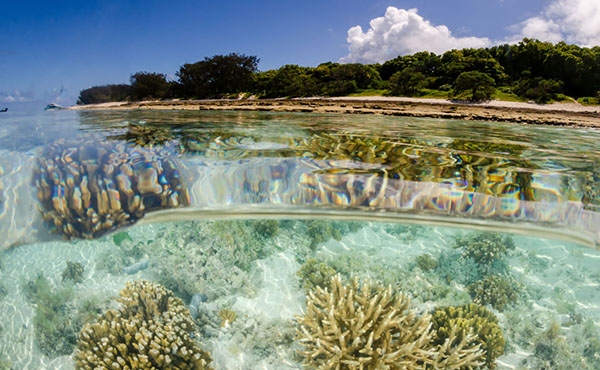Microbes play fundamental roles in the functioning and stability of ecosystems (Section 2.4.6) and respond rapidly to changes in environmental factors,773 such as currents, temperature, and water quality. They are central to capturing and converting nutrients into available forms that drive the productivity of marine food webs and enable the efficient cycling of nutrients on coral reefs growing in nutrient-poor waters (Section 3.3.1).728 Microbes are critical to primary production,774 and calcification of microbial mats is an important component of reef-building processes (Section 3.4.8), helping bind and stabilise coral reef frameworks.775,776
Microbial communities respond rapidly to environmental fluctuations
Microbial communities can influence the health of other organisms through symbiotic relationships, for example, as crucial components of the coral holobiont 773,777 (Section 3.4.6). Microbial communities vary through time and respond to environmental fluctuations and drivers, particularly temperature and nutrients.712,778 This applies to both coral-associated and free-living planktonic microbes.712,779 Rising temperatures are altering microbial communities, which has implications for nutrient cycling, disease prevalence and coral susceptibility to bleaching.356,777,779,780 A general trend of increasing microbial biomass and energy use (microbialisation), previously observed in response to local stressors, is expected as the climate changes.777,781,782 Ocean acidification threatens microbial calcification, which has negative implications for reef-building processes.776
The microbial community includes viruses, which are not well studied but are known to play direct and indirect roles in nutrient cycling and induce disease on reefs and in other ecosystems.783 Pathogenic microbes carried by plastic pollution can promote disease in marine environments.784 Higher levels of land-based runoff have been associated with reduced richness and diversity of bacterial communities on inshore reefs in the Region.712 As a result, the relative abundance of different bacterial groups has been suggested as an indicator of the contribution of land-sourced nutrient enrichment of Reef waters.772 Carbon compounds produced by macroalgae support bacterial communities that harm corals, thereby helping algae compete for space.712
Since 2019, microbial processes have been an area of active research interest, and knowledge in this area has made important advances, but the processes remain poorly understood.712 For example, between 2016 and 2022, at one location in the Region, change in diversity was observed for archaea (Section 2.4.6) but not for bacteria.251 Microbes have been proposed as an emerging essential ocean variable in the Global Ocean Observing System.785 Genomic techniques (Box 2.1) and a new open access database for the Reef have significantly enhanced our insight into microbial communities and their functions, particularly in pelagic environments.786
Environmental stressors associated with a warming climate and land-based run-off have led to changes in microbial processes across the Region that may be ongoing. Although knowledge has advanced considerably since 2019, microbial processes remain poorly understood.


